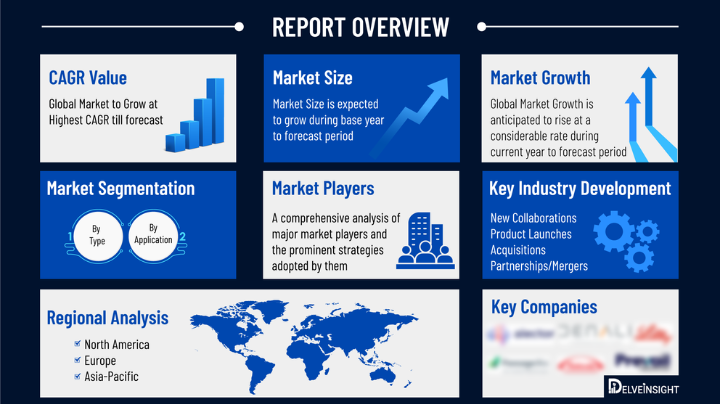Epidemiology is the cornerstone of public health research, providing valuable insights into the distribution, determinants, and prevention of diseases within populations. Understanding the epidemiology of a disease is essential for developing effective prevention, treatment, and management strategies. Epidemiology Assessment Services play a pivotal role in this process, offering critical data and analysis to guide healthcare decision-making, policy development, and resource allocation.
Overview of Epidemiology Assessment Services
Epidemiology Assessment Services provide a comprehensive analysis of disease patterns, risk factors, and trends in various populations. These services are crucial for pharmaceutical companies, public health organizations, and healthcare providers aiming to understand the burden of diseases and tailor interventions accordingly. Whether it's for assessing the prevalence of a chronic condition, understanding the impact of environmental factors, or forecasting disease outbreaks, these services offer valuable insights to help guide public health initiatives and improve patient outcomes.
Key Components of Epidemiology Assessment Services
- Disease Burden Analysis Epidemiology assessment services help quantify the burden of a particular disease within a population. This includes analyzing the prevalence, incidence, and mortality rates, providing a clear picture of how widespread and impactful a disease is. Understanding the disease burden is essential for healthcare providers and policymakers to prioritize resources and interventions.
- Risk Factor Identification Identifying risk factors for diseases is a key element of epidemiology. These services include studying the genetic, environmental, behavioral, and socio-economic factors that contribute to the onset and spread of diseases. This analysis helps in developing targeted prevention strategies and personalized treatment plans.
- Trends and Patterns Monitoring Epidemiology assessment services track disease trends and identify emerging health threats. By analyzing historical data and current trends, healthcare organizations can predict potential outbreaks or shifts in disease patterns. This forecasting ability is crucial for proactive healthcare planning and response.
- Population Health Insights These services provide deep insights into the health status of specific populations, taking into account age, gender, geographic location, and other demographic factors. This helps in understanding which groups are most at risk and aids in the design of interventions that address their unique needs.
- Healthcare System Impact Analyzing how diseases affect healthcare systems is another critical component of epidemiology assessment services. This includes studying healthcare resource utilization, the cost burden of diseases, and the effectiveness of interventions. By understanding the broader impact on healthcare infrastructure, these services help optimize public health strategies.
Applications of Epidemiology Assessment Services
- Public Health Policy Development Epidemiology assessment services provide the data needed for evidence-based policymaking. Governments and health organizations rely on this information to create guidelines, regulations, and public health campaigns aimed at reducing disease prevalence and improving population health.
- Pharmaceutical Development For pharmaceutical companies, understanding the epidemiology of diseases is essential for developing effective treatments and vaccines. Epidemiology assessment services offer valuable data on disease incidence, risk factors, and patient populations, helping guide drug development and clinical trials.
- Healthcare Resource Planning By identifying disease trends and predicting future healthcare needs, epidemiology services assist in resource planning. This includes anticipating the demand for healthcare professionals, medical equipment, and hospital facilities, ensuring that the healthcare system is prepared for any future challenges.
- Disease Surveillance and Outbreak Management Epidemiology assessment services are vital for monitoring disease outbreaks and ensuring swift responses. By tracking disease patterns in real-time, these services help detect outbreaks early, enabling timely interventions that minimize the spread and impact of infectious diseases.
- Global Health Initiatives On a global scale, epidemiology assessment services are crucial for tackling international health threats. These services provide essential data for global health organizations, guiding worldwide initiatives aimed at controlling infectious diseases, improving vaccination coverage, and addressing health disparities.
Why Choose Epidemiology Assessment Services?
- Data-Driven Decision Making With access to robust and accurate epidemiological data, stakeholders can make informed decisions based on facts rather than assumptions. This ensures that public health initiatives and healthcare strategies are grounded in real-world evidence.
- Tailored Solutions Epidemiology Assessment Services are customized to address the specific needs of different stakeholders, whether it’s a healthcare provider, pharmaceutical company, or government health agency. The analysis is tailored to the geographic region, disease type, and target population, providing actionable insights for a more effective approach.
- Proactive Risk Management By identifying potential health risks and trends early, these services help stakeholders take a proactive approach to disease prevention and management. This can help avoid costly outbreaks and reduce the long-term burden on healthcare systems.
- Cost Efficiency Understanding the epidemiology of diseases allows for more efficient allocation of resources. By focusing on high-risk populations and emerging health threats, organizations can optimize their budgets and ensure that resources are directed where they are needed most.
Conclusion
Epidemiology Assessment Services are invaluable tools for understanding and managing the spread of diseases in populations. These services provide critical data that can guide public health decisions, inform pharmaceutical development, and optimize healthcare resource planning. With their ability to identify trends, assess disease burden, and predict future health challenges, Epidemiology Assessment Services play a pivotal role in improving health outcomes worldwide. By utilizing these services, stakeholders can ensure that their strategies are based on reliable data and tailored to meet the evolving needs of the population.
Related Services by DelveInsight
Contact Us
Himanshu

